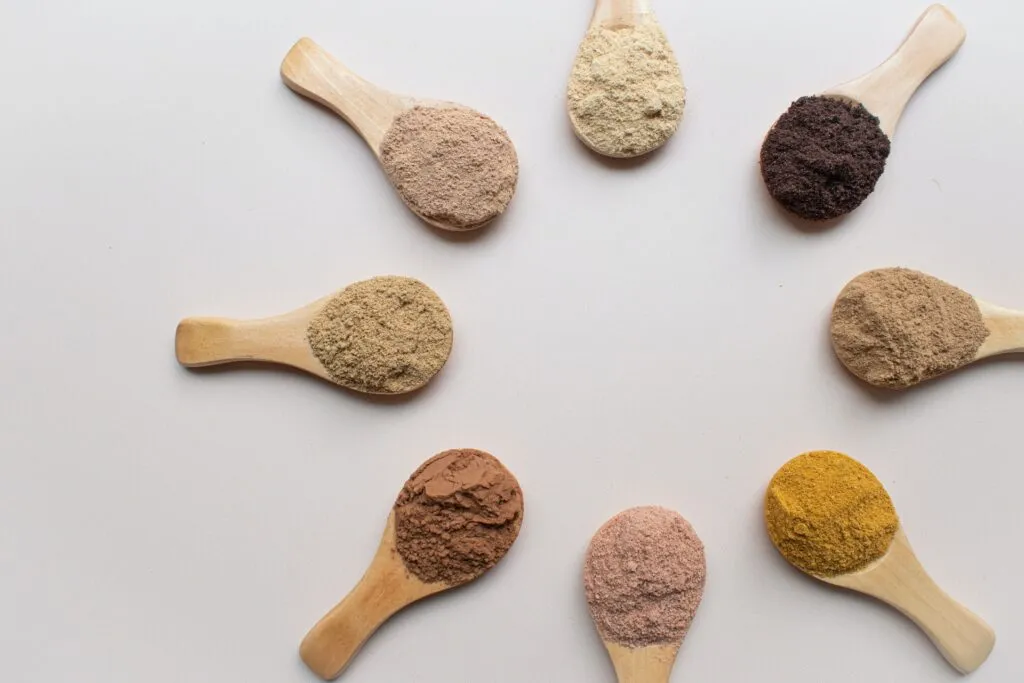Health Guide: What Are The Benefits And Side Effects Superfood Powders

Do you want to improve your overall health and lifestyle? Superfood powders might be the answer! Loaded with nutrients, vitamins, and minerals, these types of powders offer a variety of benefits including increased energy levels, improved digestion, and immunity, and better weight management support — all while improving dietary habits. But what exactly are superfood powders? And what are their potential side effects?
In this article, we’ll discuss the answers to these questions in depth so that you can understand how adding them to your diet could benefit or even harm your body.
Importance Of Dosages
Superfood powders, while beneficial, need to be consumed in the right quantities to ensure you reap the health benefits without experiencing unnecessary side effects. Just like any other supplement, the importance of appropriate dosage cannot be overstated.
A crucial aspect to remember is that superfood powders are concentrated sources of nutrients and consuming too much can lead to nutrient toxicity. For example, if we look at the Balance of Nature dosage recommendations, it is recommended to take 3 capsules of their fruit and vegetable blend daily. This ensures proper nutrient intake without going overboard and risking potential side effects.
Also, it is important to note that the dosages may vary depending on the type of superfood powder you are consuming. It is always best to follow the recommended dosage instructions provided by the manufacturer or consult with a healthcare professional for personalized advice.
Balancing the Benefits and Side Effects of Superfood Powders
Striking the right balance between the benefits and potential side effects of superfood powders is pivotal for optimal health outcomes. On one hand, these powders are nutrient-dense and can supplement your diet effectively, particularly when it’s challenging to consume a variety of fruits and vegetables. They can boost energy levels, enhance immune function, and support digestion and weight management. On the other hand, overconsumption risks nutrient toxicity and possible side effects such as digestive disturbances.
One must be mindful that superfood powders are not a replacement for a balanced, diverse diet but rather a complement to it. The primary source of nutrition should always come from whole foods. Just as with any dietary supplement, it’s critical to keep in mind that “more” does not automatically equate to “better.” Therefore, adhering to recommended dosages and seeking advice from healthcare professionals where necessary will ensure that you maximize the benefits of superfood powders while mitigating potential risks.
Potential Allergies and Sensitivities to Watch For
It’s vital to be aware that superfood powders, like any dietary supplement, could provoke allergies or sensitivities in some individuals. Each superfood powder is different, containing a unique blend of ingredients, so it’s possible that you could have an adverse reaction to one or more components. Common allergens could include nuts, dairy, wheat, or soy, which are often found in various superfood powders.
Symptoms of an allergic reaction can range from mild, such as hives or itching, to severe, including breathing difficulties or anaphylaxis. If you experience any adverse reactions upon consuming a superfood powder, discontinue use immediately and seek medical attention.
Even if they are not as severe as allergies, sensitivity can still be uncomfortable. These might manifest as digestive upset, bloating, or headaches. It’s essential to pay attention to your body’s response to a new supplement. If a particular product doesn’t seem to agree with your system, it’s best to discontinue use and consider alternative options.
Dosage and Consumption Guidelines for Superfood Powders
Proper consumption of superfood powders involves a careful balance of getting the most out of the nutritional benefits while avoiding potential adverse effects. Here are a few guidelines to help you navigate dosage and consumption:
Follow the Manufacturer’s Instructions: Each superfood powder is unique and may contain different concentrations of nutrients. Always follow the manufacturer’s dosage instructions on the packaging. These guidelines are established based on the product’s specific formulation and nutrient content.
Start Small: If you’re new to superfood powders, it’s advisable to start with a smaller dosage and gradually increase as your body adjusts. This approach allows your body to acclimate to the supplement and minimizes the likelihood of adverse reactions.
Combine with Meals or Snacks: Superfood powders can be incorporated into your meals or snacks. They can be mixed into smoothies, yogurt, oatmeal, or even sprinkled on salads. Combining them with food can improve their absorption and make them easier to digest.
Consult a Healthcare Professional: If you have any underlying health conditions or are taking any medications, it’s crucial to consult a healthcare professional before starting any new dietary supplement, including superfood powders. They can offer tailored guidance according to your requirements and current state of health.
Incorporating Superfood Powders Into Your Diet
Superfood powders can be effortlessly integrated into your daily nutrition routine. They can be sprinkled onto morning cereal, stirred into a glass of water or juice, or blended into a protein shake or smoothie. For individuals who enjoy cooking, these powders can even be incorporated into recipes, providing an added nutrient boost to dishes like soups, sauces, and baked goods.
In the morning, you might consider adding a spoonful of greens powder to your smoothie for a nutrient-packed start to the day. Midday, a protein-based superfood powder can be mixed into a yogurt or smoothie bowl for a healthy, satisfying lunch. In the evening, consider stirring a spoonful of mushroom or beetroot powder into your soup or stew for an extra dose of healthful nutrients.
The key is to experiment with different types of superfood powders and methods of incorporation to find what works best for your palate and lifestyle. Always remember, though, that these powders are supplements – they’re meant to enhance a diet that’s already rich in whole foods, not replace them.
Superfood Powder Safety: Interactions and Warnings
While superfood powders offer a wide range of health benefits, it’s essential to be aware of potential interactions and warnings. Just as with any dietary supplement, superfood powders can interact with certain medications, affecting their efficacy, and may not be suitable for everyone.
For instance, some superfood powders are high in vitamin K, which can interfere with blood-thinning medications such as warfarin. Those with kidney disease or other underlying health conditions should also exercise caution, as certain superfood powders are high in potassium and could exacerbate these conditions.
Others contain compounds or ingredients that could interact negatively with psychiatric medications or over-the-counter drugs. Therefore, before incorporating any new supplement into your regimen, it’s critical to consult with a healthcare professional, particularly if you have a chronic health condition or are on long-term medication.
In conclusion, superfood powders can offer a wide array of health benefits, but they must be consumed with care and caution. By following proper dosage and consumption guidelines, being mindful of potential allergies or sensitivities, and seeking professional advice where necessary, you can safely introduce these nutrient-dense powders into your diet for improved overall health and wellness.
